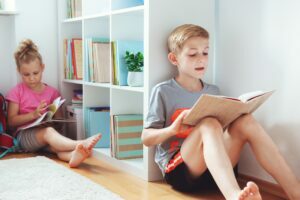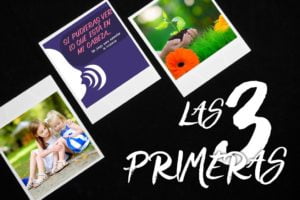Throughout this month we have been exploring ways we can support our students and children to practice and cultivate their self-regulation, which we know is the foundation to building healthy relationships and being ready to learn. So we got curious about how technology can support children in building self-regulation?
We know that many children spend hours each week engaged in technology both at school and home. So we wanted to explore some apps that were using this platform to engage with children in a way that helps them explore their emotions, and build self- awareness and resiliency. We found some amazing tools out there. Here are just three of our favorites!
Mightier:
 Mightier uses kids interest in videogames along with biofeedback to help kids learn not only about the mind body connection to stress and emotions but how to notice and help get their body back in balance. It works by kids playing a videogame while wearing a heartrate monitor. As the game gets more difficult and stress level goes up–raising our heartrate– it lets the user know when they are entering the “red level”. When the player’s heartrate is in the “red level” the game pauses and has the player engage in deep breathing to come back down into the green and resume playing. What a fun way to teach kids about their body, emotions and stress!
Mightier uses kids interest in videogames along with biofeedback to help kids learn not only about the mind body connection to stress and emotions but how to notice and help get their body back in balance. It works by kids playing a videogame while wearing a heartrate monitor. As the game gets more difficult and stress level goes up–raising our heartrate– it lets the user know when they are entering the “red level”. When the player’s heartrate is in the “red level” the game pauses and has the player engage in deep breathing to come back down into the green and resume playing. What a fun way to teach kids about their body, emotions and stress!
To learn more you can visit:
https://mightier.com/how-it-works
https://www.engadget.com/2018/04/03/mightier-mobile-game-platform-kids-calm/
This is a phone and tablet based program (but also a channel on HULU) that uses the principles of mindfulness to help children learn about how to support their nervous system to come back into balance during times of stress. It use the concept: Stop, Breathe, Think. In the kids app, users go on missions after a check-in about how they feel to learn about deep breathing, watching thoughts, and handling big feelings. In their older kids app, there are many different guided mediations to choose from depending on interests or areas of focus. And huge bonus is that these apps are free to teachers for LIFE!! To learn more check out their website: https://www.stopbreathethink.com/
This is a curriculum-based program for children 4-11 to teach the basics about emotions, handling frustrations, problem solving and creating positive coping skills. This program uses videos and games to support children in being curious about why they are feeling an emotion and ways to handle when big emotions arise. This app is also free to all teachers to use in their classrooms or with individual kids!! To sign up or learn more visit their website: https://www.emotionalabcs.com
Additional Articles/Resources:
To learn about other great apps for helping kids build self-regulation check out these articles.
https://www.cbc.ca/parents/learning/view/seven-self-regulating-apps-for-kids-that-teach-mindfulness
https://mashable.com/article/apps-kids-mindfulness-control-emotions/
https://www.commonsense.org/education/top-picks/emotional-intelligence-apps-and-games
[divider type=”standard” text=”Go to top” full_width=”no” width=”1/1″ el_position=”first last”]
Text: © Kids In Transition to School 2019
Image: © Zoran Milsavljevic| Dreamstime.com





